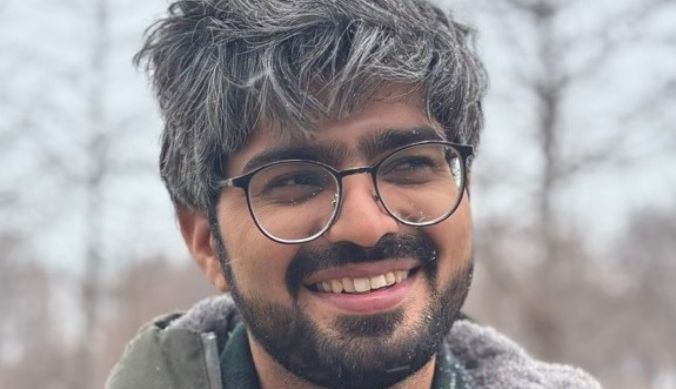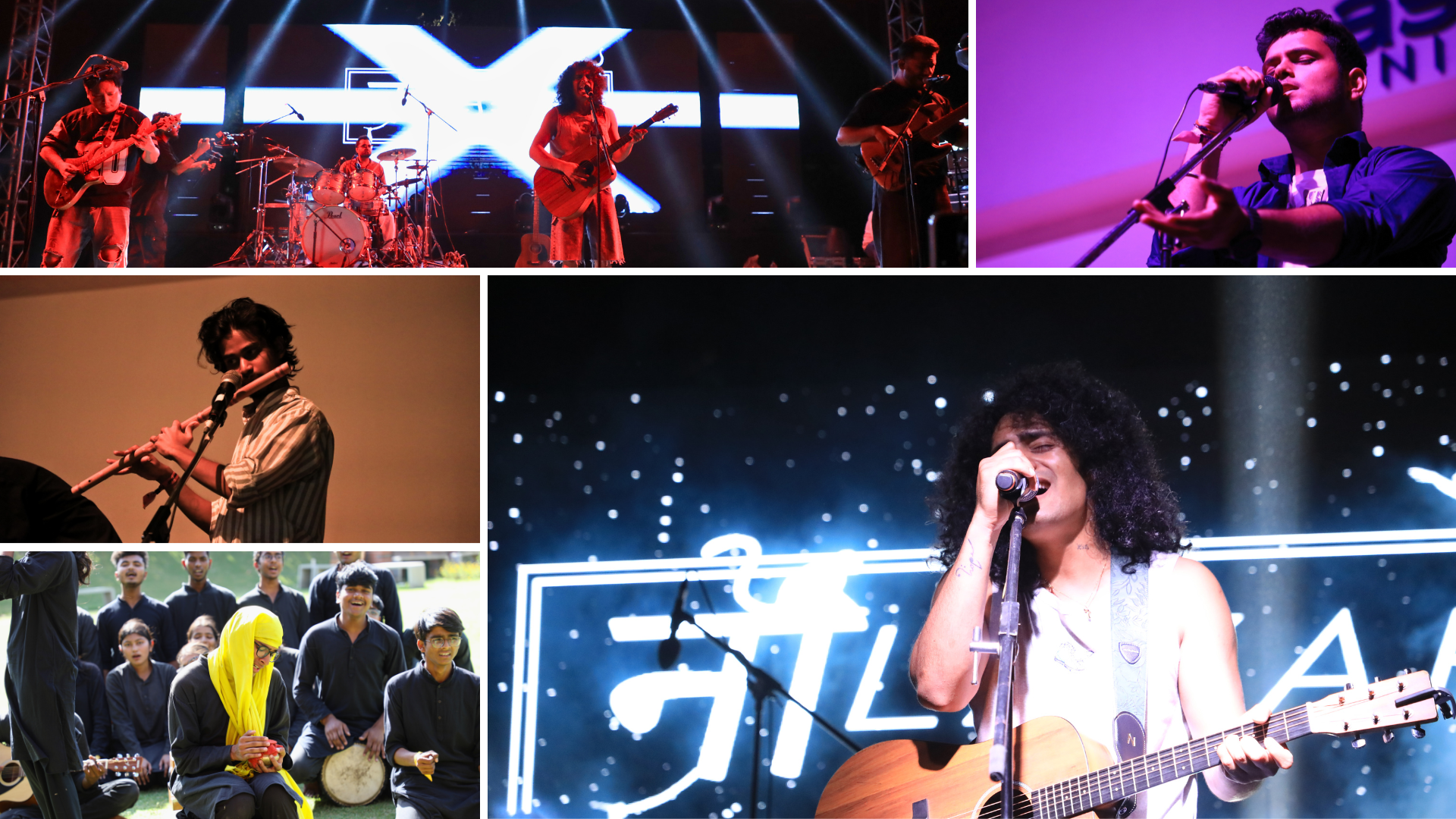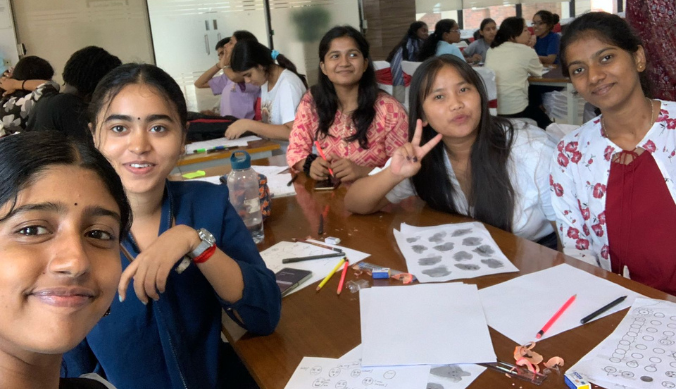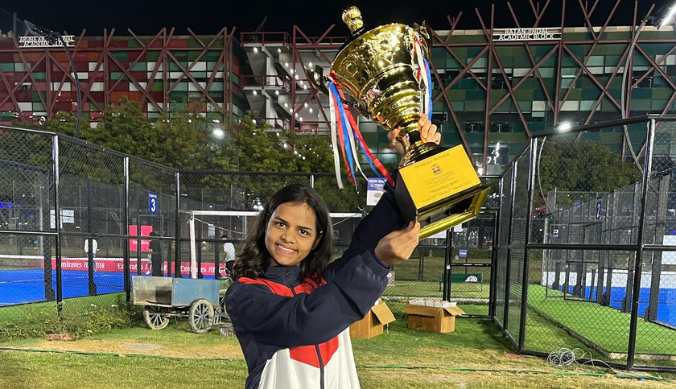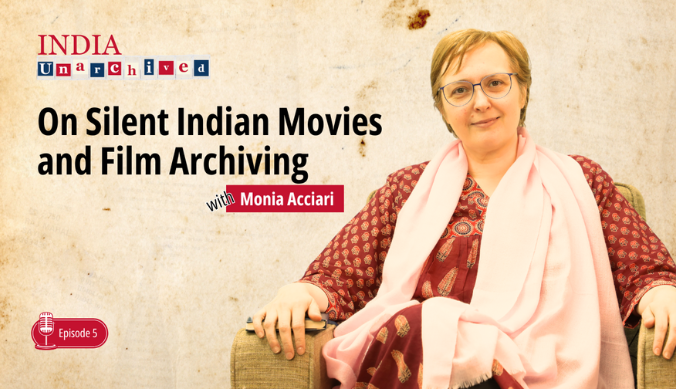A Global Learning Experience: Ashoka University’s Visiting Student Programme
Ashoka University’s Visiting Student Programme welcomes students from global universities, offering them academic rigor, cultural immersion, and the chance to explore India.
Launched in 2016, Ashoka University’s Visiting Student Programme (VSP) welcomes students from international institutions across the globe to experience the University’s unique academic offerings. Under this programme, students from leading international institutions can choose to spend either a summer, semester or full academic year at Ashoka, immersing themselves in its interdisciplinary curriculum and vibrant campus life.
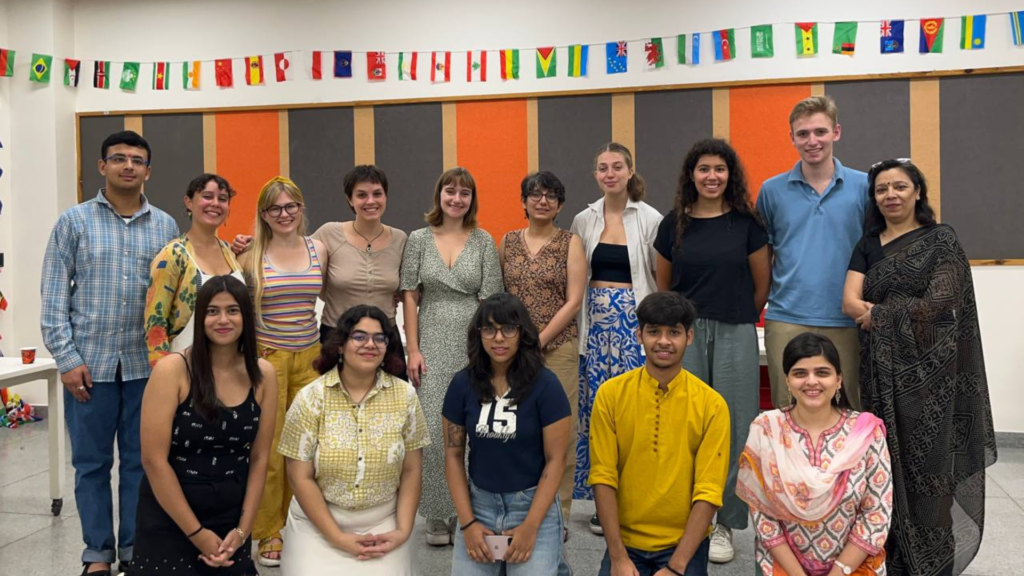
Additionally, the VSP encompasses summer semesters and research programmes, providing a broad range of opportunities for academic exploration and growth. Students can enrol in foundation courses, co-curricular courses and courses from different academic disciplines at Ashoka. The foundational courses, which are a signature element of an Ashoka education, introduce students to diverse styles of thinking and are frequently taught in an inter- and trans-disciplinary manner.
Along with academics, these students also get an opportunity to immerse themselves in pursuing their hobbies and interests through 50+ student-run clubs and societies!
A Hub for Global Exchange
With a strong emphasis on academic excellence and cultural exchange, the VSP has hosted:
- 140+ international students
- 20+ prestigious universities
- Partner & non-partner institutions include Cornell, King’s College London, Princeton, Yale, Columbia, HEC Paris, Monash University, University of Birmingham, NUS, UC San Diego, and more.
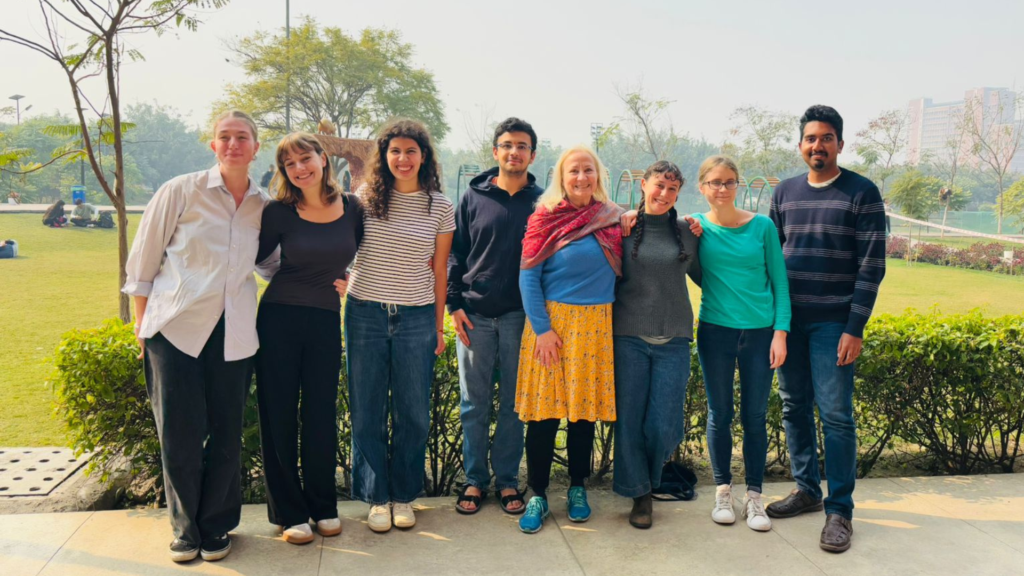
Why Choose Ashoka’s Visiting Student Programme?
Ashoka University offers visiting students an unparalleled academic experience that combines intellectual rigour, a vibrant campus life, and rich cultural exposure. From engaging classroom discussions to immersive travel experiences, the VSP ensures that students leave with lifelong memories, friendships, and a deep appreciation for India’s diversity.
As the Summer@Ashoka programme continues to grow, it reaffirms the university’s commitment to academic excellence, cultural exchange, and global engagement—building bridges between students from across the world.
Student Experiences
“I learned about the formation of the modern Indian state and gained a deeper understanding of the mechanisms of democracy from the Contemporary Indian Politics course. While we were taught India’s specific chronology and history, Professor Sitapati also introduced us to concepts of the State, Democracy, Ethnicity and Identity. All of these are relevant as I go forward in my research.” -Pia Sarah Haykel, Princeton University
“I have found the interdisciplinary nature of Ashoka education to be extremely rewarding, as I’ve been able to delve into history, environmental studies, and politics over the course of one semester. It’s been great learning from some of India’s best lecturers, who have made me critically analyse the way that I think.” –James Toogood, Monash University
“Studying at Ashoka is more than just academic improvement. The warmth of the campus and all its people make you feel welcome and safe, making this a very memorable semester in the best way possible!” –Desiree Corrijn, University of Ghent
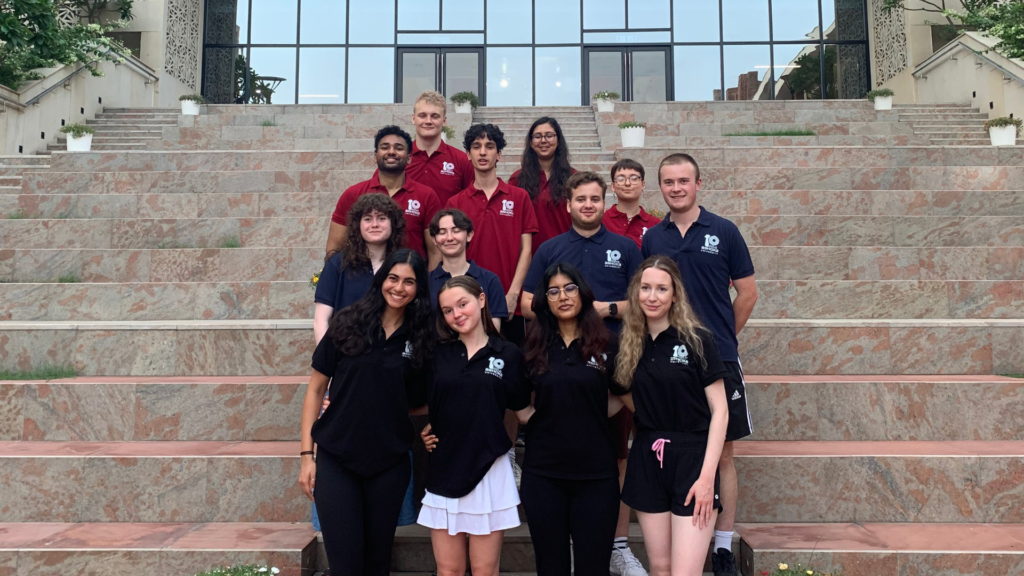
Ashoka International Summer Research Programme (AISRP)
The Ashoka Summer Research Programme is a unique programme that offers undergraduate and master’s students from both international partner and non-partner universities an opportunity to engage in cutting-edge, interdisciplinary research at Ashoka University.
The students who partake in the programme get the opportunity to work closely with faculty mentors and their research groups, which include graduate and PhD students. They can also apply to the available research projects put out by the Ashoka faculty/lab of their interest and technical skills. The inaugural edition of AISRP provided students from around the globe with an exceptional platform to conduct interdisciplinary research across streams including Biology, Psychology, Physics and Chemistry. The programme had participants from Cornell University, NYU, University of Birmingham and UC San Diego. They received hands-on mentorship by Ashoka’s distinguished faculty and researchers.
Student Testimonial: “I loved connecting my classroom knowledge to laboratory research while immersing in the vibrant culture of India.” – Haruna Floate, Cornell University (Summer research 2024 under VSP
Highlights from VSP 2024
This summer, Ashoka University welcomed 14 international students from 10 prestigious institutions across the globe, including University College Maastricht, University of Zurich, RUB-Germany, University of Sheffield, Sciences Po, HEC Paris, Monash University, Clark College (USA), and UNSW Sydney. Of these, six universities are Ashoka’s partners, while four are non-partner institutions, reflecting the university’s growing global appeal.
Over six weeks, these students immersed themselves in Ashoka’s academic environment, cultural experiences, and dynamic campus life.
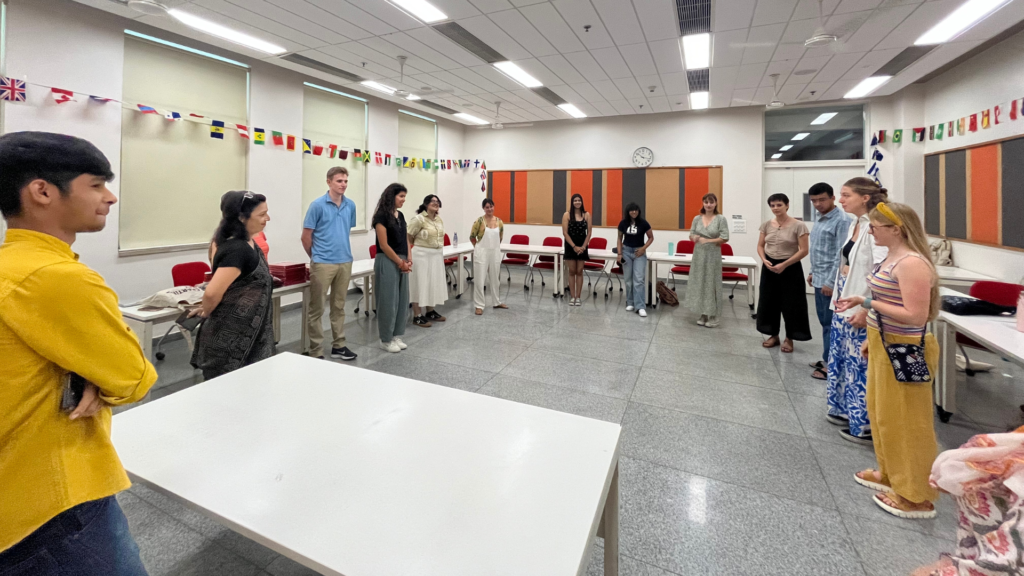
Diverse Academic Engagement
The visiting students enrolled in a range of thought-provoking courses, engaging with Ashoka’s distinguished faculty. Some of the popular courses included:
- Environmental Studies – Professor Mitul Baruah
- The Rise of Populism in International Politics – Professor Ananya Sharma
- Artificial Intelligence and Technology for Entrepreneurs – Professor Ekanto Ghosh
- Indian Civilizations – Professor Gopalkrishna Gandhi
- War: History, Politics, Society – Professor Pratyay Nath
- Wisdom of the Documentary Film – Professor Natasha Badhwar
Additionally, students like Haruna Floate (Cornell University), Hooriya Kabir (NYU Abu Dhabi), and Dhyay Thakrar (UC San Diego) contributed to cutting-edge research projects in environmental studies, social behaviour, and climate science, collaborating with Ashoka’s scientific faculty and research labs.
Blending Learning with Cultural Experiences
The Ashoka experience extended far beyond classrooms, allowing visiting students to immerse themselves in Indian culture. Some of the highlights included:
- Indian Childhood Games Night – Students played nostalgic games like Chain Break, Kho-Kho, Pittu Garam, and Bulldog, experiencing the joys of an Indian childhood.
- Bollywood Movie Night – A screening of Om Shanti Om introduced students to India’s vibrant film industry.
- Interactive Dinners – A special informal dinner was planned where students cooked and shared Indian delicacies.
- City Excursions – VSP students explored Delhi’s historical sites like Humayun’s Tomb and India Gate, shopped at Dilli Haat, and took weekend trips to Agra and Jaipur for a deeper dive into India’s rich heritage.
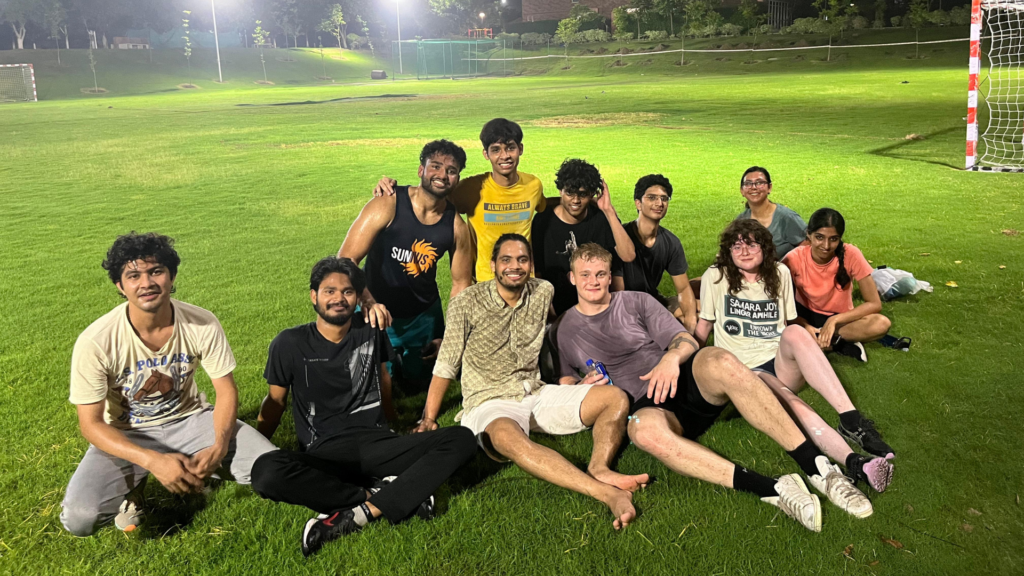
The summer concluded with a heartfelt farewell event on August 7th. The evening was filled with music, dance, and reflections, with students enjoying pizza, honey chilli potatoes from the famous campus dhaba and soda. As they departed, students carried home Ashoka notebooks, pictures, and warm memories, ensuring that their Ashoka journey would remain unforgettable.
Beyond Words: A Journey into Hindi Conversations at Ashoka
Language is more than just a tool for communication; it is a gateway to culture, history, and human connection. This semester, as part of the Visiting Students Programme (VSP), I have had the privilege of leading a Conversational Hindi Class, a non-credit course designed specifically for our visiting students at Ashoka University, an initiative by the Office of Global Education, led and designed by me. What started as a casual request from a few enthusiastic students quickly turned into a vibrant weekly gathering where language learning is interwoven with cultural exchanges, humor, and shared curiosity.
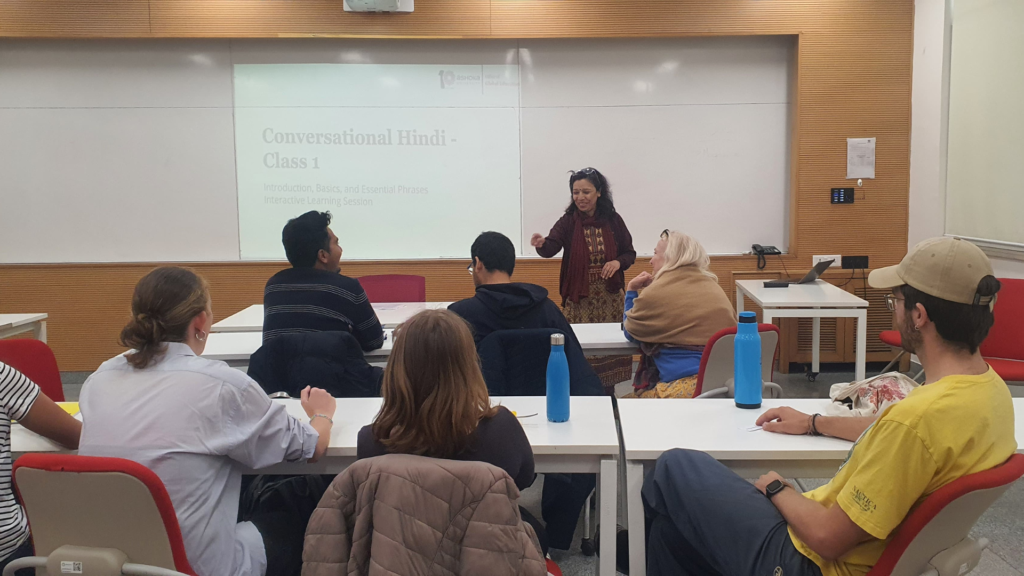
With a diverse group of students—hailing from Australia, Britain, Ecuador, Switzerland, and France (including the island of Réunion)—each class is a dynamic blend of accents, perspectives, and learning styles. Meeting once a week during lunch hours, we dive into everyday Hindi phrases, essential vocabulary, and the nuances of expression that help students navigate their time in India with greater ease and confidence.
Our first class began with basic Hindi phrases—simple greetings, self-introductions, and common expressions used in everyday conversations. The excitement was palpable as students experimented with pronunciation and discovered connections between Hindi and their native languages.
By the second session, they had already taken charge! They prepared short dialogues in Hindi and performed them in pairs, showcasing their creativity and growing confidence. But what truly made the class memorable was their enthusiasm for Bollywood. Midway through our lesson, they broke into a Bollywood song, singing along with surprising fluency, and later narrated the plot of a Hindi movie they had watched that week. Their excitement was infectious, turning our classroom into a space of music, storytelling, and cultural immersion.
One of the most entertaining aspects of our class has been navigating the finer details of Hindi pronunciation. Students often debate over the differences between ड (ḍa) and ढ (ḍha), and question why ष (ṣa) and श (sha) exist as separate letters when they seem to sound the same. We laugh over the subtle distinctions between similar-sounding letters, like the retroflex ट (ṭa) and ठ (ṭha), and the dental त (ta) and थ (tha)—all of which add to the richness (and challenge!) of learning Hindi.
Beyond the spoken words, these classes have become a space for cultural exchange. My students bring their own languages, idioms, and traditions into the room, making each session a two-way street of learning. A Swiss student compares Hindi sentence structures with French, an Ecuadorian student finds echoes of Hindi expressions in Spanish, and our British and Australian students pick up on the many ways English has been adapted into everyday Hindi conversations.
What makes this experience truly special is the enthusiasm and effort each student brings to class. Watching them confidently order food in Hindi, strike up small conversations with locals, or simply appreciate the depth of the language is immensely rewarding. It reminds me that language learning is not just an academic exercise but a bridge to deeper understanding and meaningful interactions.
As we continue this journey, I hope this small but lively initiative enriches our visiting students’ experience at Ashoka, making India feel a little more like home—one Bollywood song, one tricky pronunciation, and one shared story at a time.
Study at Ashoka









